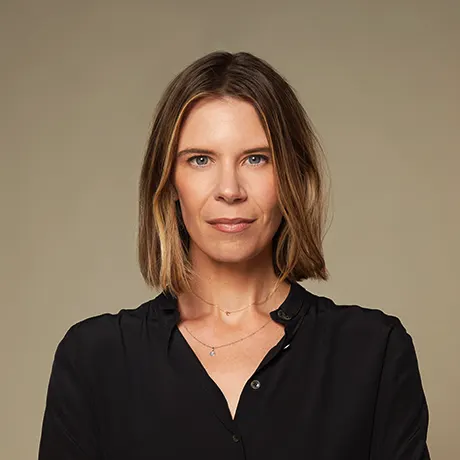“Trapped” with ADHD during the pandemic (Erin’s story)
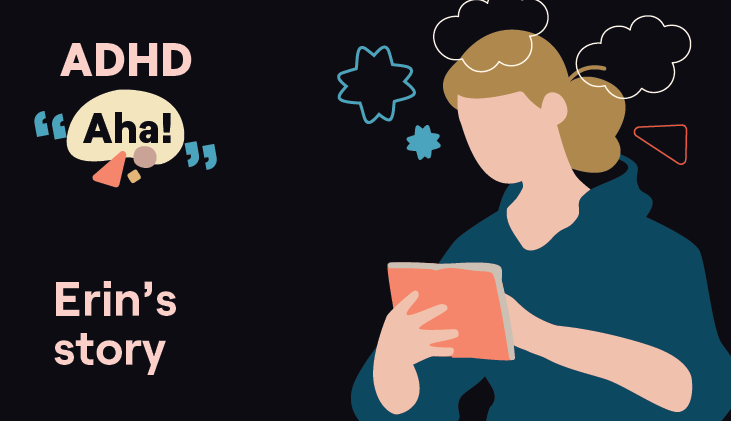
Stay in the know
All our latest podcasts delivered right to your inbox.
Erin Lazoen is a listener who wrote in about her “aha!” moment during the pandemic. Working full time, and a newly single parent, Erin had a lot going on stuck inside four walls. She was diagnosed with ADHD and struggled with reading comprehension as a kid, but she didn’t realize just how much was going on inside her head as an adult. She decided it was time to revisit her ADHD diagnosis.
During the pandemic, Erin wasn’t able to push all her thoughts to the back of her head like usual. Stuck inside, she felt as if all she could do was flip through all the open tabs in her brain. But all of that is part of what makes her such a great — and creative — parent. Also in this episode: feeling like an “oddball” in your family, and how that can actually be a huge strength.
Related resources
What’s the difference between inattention and distractibility?
Why kids have trouble understanding or remembering what they read
Episode transcript
Erin: Being quarantined — I remember very much feeling trapped, like alone with my thoughts. And I realized, oh man, I have a lot going on in my head. And I have a lot of distractions and I have a lot of need to be out and among people and doing things. And I think a lot of people enjoy being home and not going anywhere. But it was the opposite for me. It was almost painful.
Laura: From the Understood Podcast Network, this is "ADHD Aha!," a podcast where people share the moment when it finally clicked that they or someone they know has ADHD. My name is Laura Key. I'm the editorial director here at Understood. And as someone who's had my own ADHD "aha" moment. I'll be your host.
I'm here today with Erin Lazoen. Erin is an "ADHD Aha!" listener who wrote in and shared her story with us and we invited her to come on the show. Erin works in insurance and health services in Des Moines, Iowa. Thanks for being here today, Erin.
Erin: Sure. I'm excited.
Laura: So to kick things off, I would love if you would tell me when you got diagnosed and what you were diagnosed with.
Erin: So I was diagnosed actually at a young age, probably 6 or 7. My parents noticed that I was struggling with school specifically, and so they got me evaluated. I remember going — we lived in a similar town back then — so we went to this big university hospital, and they discovered that I have ADHD. And at the time they tried several medications. Nothing really worked. A lot of the feedback I remember getting is that it would take away from my personality a lot. And so I was pretty kind of lost. Like I remember my mom saying, you know, no excitement about things. It really just wasn't right. So then I had an IEP, so that really helped me in school.
Laura: Which is, for listeners, an Individualized Education Program. And some people call it Individualized Education Plan. It's like a map that lays out the program of special education instruction and supports and services that kids need.
Erin: Yes. Yep. And then once I got to be an adult, that's where kind of things shifted a little bit, I think, because I almost want to say forgot about it a little bit. I felt like, oh, that's just part of who I was when I was a kid. I don't have that, really. And then, you know, life happens and things shift. And I discovered I really do have ADHD. So I feel like the last few years have really been my "aha" moment, so you could say, where I figured out what's the best route for me.
Laura: I want to talk more about that. But first, can you tell me about what led your family to get you evaluated? What was happening in school, for example?
Erin: So a lot of it was really just not focusing. I mean, I was looking out of the window or playing with my dress. I remember that being a comment — just kind of in my own world and not paying attention to what they were saying at all. And then I would take a test or they'd ask me a question and I'd be like, I have no idea what you're talking about. Because I wasn't — it was like I was not there. Even though I was physically there, I wasn't really there.
Laura: You mentioned when we spoke last that you were struggling with reading as well. Is that right?
Erin: Oh, yes, that's true. You know, I could read fine. I could read out loud. I could do all that. But if they asked me what I read, I had no idea. And I still struggle with that. But yeah, very much like the comprehension, paying attention to what was on the page.
Laura: And on your IEP, did they say that you had a reading disability? I'm curious about the reading and ADHD overlap.
Erin: So it was reading comprehension — like ADHD and reading comprehension. So a lot of the assistance I did get was extended time on tests. I could have my tests read to me. I remember taking the ACT and I couldn't have that read to me, but I could — I had extended time on taking that, and so that spilled all the way over into that time in my life. And then after that it kind of dropped off because I had met all my goals, which was good. But definitely reading was the pinpoint of that. The main concern was in reading.
Laura: Did you ever get in trouble in school?
Erin: Yes, a lot of times they thought I didn't care, maybe? A lot of people thought I was — I don't know if "snotty" is the right word, but almost snooty because I was quiet and I would just, like, not pay attention like, I was just kind of off. And they thought, oh, she doesn't care. She's not paying attention to me. But it was really out of my control, which at the time I didn't think was different. I thought I was just quiet and that was really it.
Laura: That's really interesting. I've actually never heard that perspective from anyone on the show before about that perception of being standoffish, but it was related to your symptoms and you're having trouble paying attention.
Erin: Yep. Yep. And I don't think at that time maybe friends really noticed because we were all pretty young. But teachers, always, the parent-teacher conferences talked about she's so quiet and she's reserved. I would hear that a lot. And I always thought, well, I'm just — I'm just shy. I think I am shy to an extent, but not so much now. It's just interesting because I would be quiet and I would be thinking of other things. And I didn't love school. I didn't love sitting, having to sit that whole time and look at one person. I needed to be up and have my hands on stuff, you know.
Laura: Like your dress, right?
Erin: Yes, exactly. I remember that teacher yelled my name probably 10 times. I didn't hear her at all. And finally she yelled so loud. The whole class looked over at me. And I just remember looking up like, what happened? But I was just playing with my dress and that was interesting to me. So it was embarrassing at the same time because all the other kids in the class thought "What are you doing?"
Laura: Your memory and awareness of what was going on with you at such a young age is really impressive. Have you spoken, for instance, with your parents about this and they've recounted this or were like, how are you so aware?
Erin: Some of both, I think. They've been very open and honest with me about it, and so that's been very helpful. Certain memories like that one reading with my dress on the floor, that one is a memory I'll never forget. Another one was a teacher asked me to read a paragraph to her. This was later, like maybe junior high. She asked me to tell her what I read and I couldn't do it. And I remember her yelling at me. And I just bawled. And I thought, I don't know anything. And, you know, it really messed with my confidence. So those things stick out for sure. But really, those are the only things that I remember about my childhood with it.
Laura: I have absolutely zero expertise in the science of memory and how memory works and why some memories are sharper in our brains or more colorful in our brains than others. But just from personal experience, some of the things I remember most clearly are the things that were painful for me and that felt like a deficiency, quote unquote, in myself.
Erin: Yes, absolutely. And then we carry that as adults — or I did. You carry that and think "I don't want that to ever happen again."
Laura: So you've mentioned moving into adulthood and some of the things that have happened and some of the experiences that you've had and how your ADHD diagnosis kind of resurfaced for you. Can you talk to me about that — when it happened and what was going on in your life?
Erin: Really getting into college and being an adult, I noticed more some personality traits with my friends and even communicating with my friends. And I remember reading somewhere you have to look somebody in the eye so you can really know what they're saying. So I would just like stare at my friends in the eye, and they would say, "You look — what are you doing? You look creepy." And I'm like, "Well, I just want to make sure I know what you're saying." So little things like that, picking up those little kind of tricks along the way. And then really identifying things that I'm not going to have, but things that I am good at. So I'm not great at planning, which I would love to be and I like to say I am, but it's very overwhelming. So those kind of things I had to really work on.
Laura: During the pandemic, you had an "aha" moment.
Erin: I did.
Laura: Is this your big "aha" moment, would you say?
Erin: I think so. I think so. Being quarantined — I remember very much feeling trapped, like alone with my thoughts. And I have a 5-year-old, and she was with me. School shut down for her too. And it was very hard to wrap my brain around. Like it's hard to be contained in these walls, even though it wasn't really — like we knew it wasn't forever, but it was very hard. And I realized, oh man, I have a lot going on in my head. And I have a lot of distractions, and I have a lot of need to be out and among people and doing things. And I think a lot of people enjoy being home and not going anywhere. But it was the opposite for me. It was almost painful. Thankfully, my daughter was there. We did a lot of crafts, you know, painting. We would go for a lot of walks. So that's what brought a lot of my issues up.
Laura: So you were working full time and working from home, I assume? And you were parenting on your own. Is that right?
Erin: Yes. And so that's interesting as well, because I had just gone through a pretty difficult divorce, and that finalized like the week before everything shut down. And so I was processing that as well and being home with my daughter. We adopted a cat, because why not? So there was just lots going on. And, you know, at the time I thought, oh, this, I should be able to handle this. People go through this stuff all the time. But then after the pandemic, I realized that was really a lot to go through being stuck at home.
Laura: You were talking about how you were alone with your thoughts. Can you give me an example of how maybe your thoughts would swirl? It would be interesting for listeners and myself to hear how that rumination can happen in an ADHD brain.
Erin: So I heard this analogy somewhere, but I don't know where it came from, and it's very true for me. It is very much like I'm working on a computer, and I have multiple tabs open, and I can't close out any of them. I'm just going back and forth between all these open tabs. So that's kind of how it was. So it would be like we were painting and then I would think, let's go do our nails. And then we would play with the cat. We would go walk outside. So it was like I almost wanted to do them all at one time. So if we didn't go for a walk, I would think about it until we did.
So we would go, almost obsessing over these ideas and thoughts. I didn't have an outlet for it, and so I would just go through things. I'd go through thoughts, relationships in my head. I would evaluate my daughter and I would think "Does she have ADHD? Does she have any learning issues? Does she struggle? What can I do? How can I help her more? I need to clean more." It was just like this vicious cycle of you don't know where to start and you don't know if you should do all the things that your brain is telling you to do. And so that was a struggle.
Laura: OK. So that was such a great description, Erin. Thank you so much for sharing that. So that was essentially an example of your "aha" moment during the pandemic.
Erin: Yeah. Yep. Because then I thought, OK, if I was working or out and about, I'd probably have all those thoughts. But I was busy at work or I would be running an errand. And so those wouldn't really consume me. I could think about it, but shove it off to the back. So in the pandemic, when I couldn't do that, I was going through this constant cycle of things to do. So journaling helped. I learned how to journal. That helped a lot. And just learning new ways to kind of work that out really helped.
Laura: So that led you to get reevaluated for ADHD? And I ask because I've had a number of guests on the show who — sometimes someone will go through one big thing, one life event or life change. For one guest, it was getting sober for the first time. For another guest, it was leaving the Mormon Church. For other guests, it's an initial diagnosis of, for example, depression or anxiety. I'm wondering if going through your divorce and being there during the pandemic and being alone with your thoughts, was this catalyst to you saying, OK, what else is going on with me?
Erin: Yes, that's correct. Yep. So then I started seeking therapy and we went through my symptoms and realized that I still, in fact have ADHD and I'm still diagnosed with that. And it's definitely cued into every other aspect.
Laura: What were those symptoms?
Erin: So, feeling depressed. And I think a lot of that was thinking I should be able to do this, I should be able to handle all this stuff that I'm going through. I should not feel upset when something happens. And so that put me in a little depression because I thought the feelings that I was having were not normal. And so I needed to figure out how to cope with that. But realizing that it's part of my ADD and that I need to learn how to focus on that and what can help make that better. And that will filter into other aspects. You know, the one thing I needed to work on is communication, in the sense of saying more of my needs and not assuming people know my needs, that kind of thing.
Laura: What kinds of needs do you think you weren't communicating?
Erin: That I needed help. Not — it's OK. It's not that you're weak or it's not that you're less than. But it's just that, you know, I'm not great at planning. My sister-in-law is amazing at planning. So if she can help me with that task, I can help her something else. So I think that was a big thing. And I think especially after I went through a divorce, I thought, nobody can help me with my daughter because she's my responsibility. But realizing people really do want to help and letting someone babysit for a night is OK. Growth is realizing that I'm one person and I can't do it all the time.
Laura: Talk to me more about your relationship with your daughter. How does ADHD affect your parenting style, for better or for worse, you know?
Erin: Oh, sure. So she is so far the opposite. She does not struggle with any ADHD. I learn a lot from her because she can sit and watch something. Or her teacher told me that she is a perfectionist and so she'll sit until the assignment is done, even if other kids are playing. And I'm like, "Oh, she didn't get that from me, because I'd be up and out of there."
But areas that I struggle with are sticking with one thing with her for a long period of time. So maybe if she wants to go to the park, she might want to be there for hours. And I just would lose my mind in a way, you know, just little things like that. I could spend a short time doing a lot of things with her. But if it's a longer period of time, that's a struggle.
I worry about when she has school, like homework, and she's going to need help, because I won't be able to help her with that much. I'll try. But I think areas that we are good at is communication, though. We talk a lot about everything. And she's the funniest 5-year-old. She's very observant. She is shy. She's quiet. And she'll say, "I just feel like being shy today, Mom." That's OK. You can be shy today.
Laura: Erin, that's so awesome because that was the thing that people pointed out to you, that you were reserved or standoffish, etc. And she's just owning it. She's like, "Yeah, I'm going to be shy today. Deal with it."
Erin: Exactly. Exactly. Yep. She's so good at that. She's just — she's the best.
Laura: You said to me once before that you're like the oddball in your family.
Erin: Oh, yeah!
Laura: What do you mean by that?
Erin: Well, it's just my brother and I and my parents, so we're small. So I'm the only one who's been diagnosed with ADHD. They all are very type-A personality. And I'm all over the place, you know, kinda bouncing all over. And I've really had to have communication with them about, you know, it's not that I don't want to be that way, but I really I just can't. It's hard for me to be so structured sometimes. And so they've really embraced it and so that's been good.
Laura: Do you like being the oddball? Did you like this at all? I mean, "oddball." I'm putting quotes around that because, I mean, I love — anything oddball I think is awesome.
Erin: Yeah, I don't mind. I think when I'm around we always laugh a little bit more. It kind of takes the edge off, you know? It's not so serious. Life is too short. And so I kind of bring that light to the family, whereas they can all be really serious, even my brother — and I'm just not that way, but something that I really like about our dynamic.
Laura: How does that kind of goofiness or oddball-ness, how does it make you a really fun parent to your daughter?
Erin: Oh, well, I think — so it's — yeah, my mind is just spinning in all different directions, but I like to be creative. And so instead of getting upset about a mess or something like that, I will will make it into something fun, you know?
Laura: Oh, give me an example. That sounds amazing.
Erin: For example, this just popped into my head, but we had this round table in the kitchen. And this was during the pandemic, and it was just a wooden table. And my daughter spilled paint on it. And normally I'd be scrubbing to get that paint off, but instead we just painted it a bunch of different colors. We did her handprints — just kind of made it into a project instead of a mess.
Laura: That sounds so fun. Is there anything that we haven't touched on that you still want to talk about?
Erin: I do think it is important for other folks that they are struggling to know that it's OK, and that you can have fun and you can learn what you like about yourself and work on areas that you don't like about yourself. And that we're all in this together. And even if you go through hard things, there's light at the end of the tunnel. And so that's what I love about your podcast. So I'm so excited that we're here.
Laura: Thank you, Erin, so much. I'm so excited that you're here too. And now you get to see how the sausage is made and all the things that distract me during the interview process, for example. Thank you so much for being here.
Erin: Thank you.
Laura: You've been listening to "ADHD Aha!" from the Understood Podcast Network. If you want to share your own "aha" moment, email us at ADHDaha@understood.org. I'd love to hear from you. If you want to learn more about the topics we covered today, check out the show notes for this episode. We include more resources as well as links to anything we mentioned in the episode.
Understood is a nonprofit organization dedicated to helping people who learn and think differently discover their potential and thrive. We have no affiliation with pharmaceutical companies. Learn more at Understood.org/mission. "ADHD Aha!" is produced by Jessamine Molli. Say hi Jessamine.
Jessamine: Hi everyone.
Laura: Briana Berry is our production director. Our theme music was written by Justin D. Wright, who also mixes the show. For the Understood Podcast Network, Scott Cocchiere is our creative director, Seth Melnick is our executive producer, and I'm your host, Laura Key. Thanks so much for listening.
Host
Latest episodes
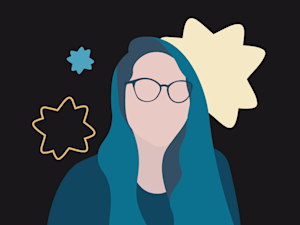
April 16, 2024
ADHD coach Jaye Lin was a gifted kid with undiagnosed ADHD. Now, she’s building communities and helping others cope with ADHD burnout.
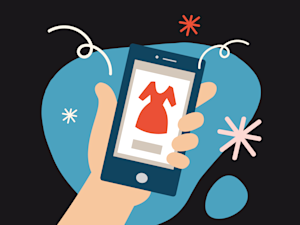
April 2, 2024
Writer Paulette Perhach had money coming in but struggled to keep it in her bank account. An ADHD diagnosis brought her struggles into perspective.
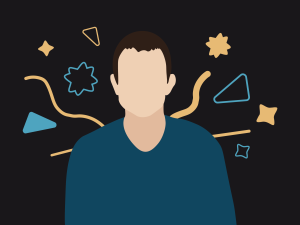
March 19, 2024
Eye to Eye founder David Flink is fighting the “just try harder” myth surrounding ADHD, dyslexia, and other learning and thinking differences.
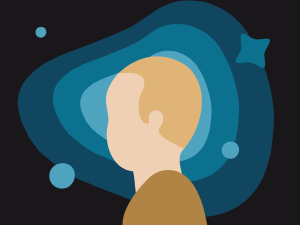
March 5, 2024
Peter Jones used to feel better saying he had a hearing problem rather than considering ADHD. Now, he knows he has ADHD and isn't afraid to say it.
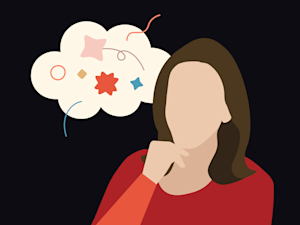
February 20, 2024
Before her ADHD diagnosis, ADHD coach Emily Weinberg thought she was just lazy. But in reality she was stuck in “analysis paralysis.”
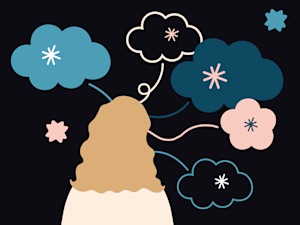
Carol Blumenstein was called an unteachable student. Now, she knows she has ADHD and dyslexia, and supports her five kids who learn differently, too.

January 23, 2024
Executive coach, actor, and former criminal defense attorney Ernest Anemone shares his ADHD story — and why he questions the term “attention deficit.”
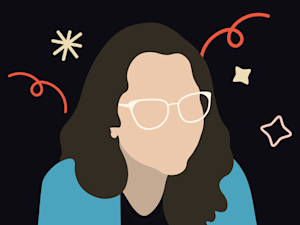
January 9, 2024
ADHD and post-traumatic stress disorder (PTSD) symptoms can look similar. And they can morph into what Hannah calls “a trauma ball of blame.”
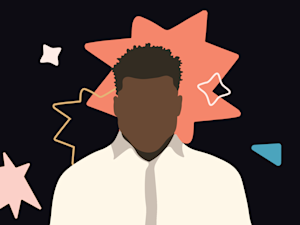
December 26, 2023
Livingston Steele was diagnosed with ADHD about a year into working at Understood.org. His experience and work have given him immense empathy for people with ADHD.
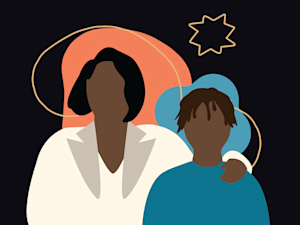
December 12, 2023
Wendy Zanders is a decluttering coach with ADHD. Find out how she got into organizing, and get a few tips for yourself.
